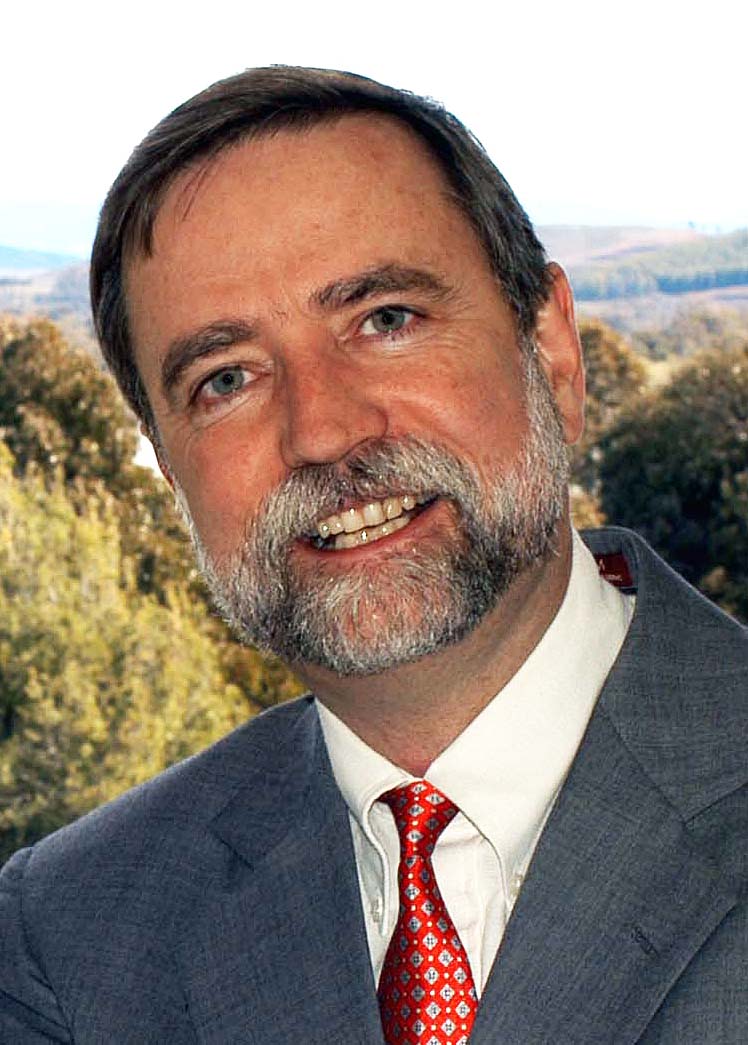Three UCLA professors elected to National Academy of Sciences

Mark Harrison
By Paul Stremple
May 8, 2011 11:46 p.m.

Edward L. Wright

Steven E. Jacobsen
Three UCLA professors were elected to the National Academy of Sciences on Tuesday ““ one of the highest honors an American scientist can receive. The academy serves as an official adviser to the federal government on matters of science and technology. The 72 new members elected to the academy this year were selected for their careers of distinguished and original research. Featured below are the recent accomplishments of UCLA’s inductees.
Edward L. Wright
Later this year, an asteroid will pass closer to the Earth than the moon does.
But Edward L. Wright is watching the skies, and he is sure the planet will be safe.
The physics and astronomy professor has dedicated his career to infrared astronomy. His most recent project was NASA’s Wide-Field Infrared Survey Explorer, a satellite that scanned the entire sky with infrared sensors, searching for the heat signatures of asteroids and other cosmic objects.
“We need to find them,” Wright said. “It’s partly to defend ourselves from being fooled but also to prevent the Earth from being clobbered.”
The satellite located more than 500,000 asteroids in its scan and discovered roughly 30,000 new asteroids. Of these, 130 were previously undiscovered near-Earth objects.
The project also located ultra-luminous galaxies ““ places where two galaxies collide and form stars ““ as well as hard-to-spot brown dwarf stars.
Wright’s early work focused on the origins of the universe, specifically through the COsmic Background Explorer, a satellite that scanned cosmic background radiation left over from the creation of the universe. The explorer’s findings supported the theory of a Big Bang.
Looking to the future, Wright hopes to continue the search for asteroids and has plans to create another infrared satellite to search the sky for a much longer time than his wide-field explorer, which broadcast from 2009 until February 2011.
There is also much work to be done with the data that has already been collected. Half of the data collected by WISE has been released, and the other half is to be released next year, revealing scans of the entire sky and the nearly 600 million objects located by the satellite.
Through it all, Wright is thinking ahead.
“We don’t know what will happen in the future,” he said, likening the paths of asteroids to a cosmic game of pool. “There isn’t anything that poses a threat for at least the next 100 years.”
All the same, Wright keeps working to discover new cosmic objects and expand the knowledge of what lurks out in the dark of space.
ҬSteven E. Jacobsen
Deep within the Terasaki Life Sciences Building, researchers are working to take control of genes and dictate the inheritance of traits.
Steven E. Jacobsen, professor of molecular, cell and developmental biology, conducts this research on epigenetics, seeking to change the expression of genes through DNA methylation, a process of turning genes on and off through the use of different enzymes.
The research Jacobsen performs mostly focuses on the mechanisms through which genes control this process.
“The main activity in the lab is to find new genes that control methylation and then figure out how they work,” he said. “Mechanism is the first step to control.”
An application of this work has not been realized yet, but Jacobsen said there will likely be one in the future.
Potential applications could range from fighting cancer by activating tumor-suppressor genes to influencing the biotech industry by inducing cells to recognize foreign DNA.
For now, Jacobsen is focusing on new techniques such as genomics, where the entire genome, rather than individual genes, is studied.
Using powerful new sequencing machines, researchers at UCLA can sequence the whole human genome in a week and then apply their findings to methylation.
Jacobsen’s research paves the way for many potential applications and medical possibilities.
“Once you know the mechanism, it becomes much easier to design drugs to interfere,” he said.
Mark Harrison
The field of geology, generally associated with slow changes over millions of years, has recently been shaken by controversy.
Mark Harrison, professor of geology, has been researching the earliest evolution of the earth and finding information that challenges traditional assumptions.
A day after returning from a visit to the Australian Academy of Science, Harrison said that the widely accepted image of the early Earth as a lava-spewing, molten mess is not correct.
“I’m interested in how continents form and evolve,” he said. “We’ve discovered little bits of minerals as old as the Earth, from a time called the Hadean period.”
These minerals help paint a picture of the early Earth that is diametrically opposed to common assumption, Harrison said.
Almost immediately, he said, there were distinct continents and oceans, practicing the same type of geological recycling seen today ““ not an uninhabitable, desiccated wasteland.
Revising the views of the developing Earth goes against the generally accepted knowledge of the last 40 years, but Harrison said the early Earth actually looked much like it does now.
Challenging the status quo about continental evolution is only one part of Harrison’s research. The professor is also looking into how the collision of India and Asia led to the formation of the Himalayas.
The process of this formation seems simple on the surface, but Harrison said there are gaps in geographical knowledge.
“We have an almost perfect understanding of the ocean basins,” he said. “But once we get on shore, plate tectonics are a bleeding mess.”
Harrison seeks to further explore the subject, and a recently secured grant is funding a trip to Tibet next year for the professor to investigate changes in the thickness of the Earth’s crust.
If all goes according to plan, Harrison will return to once again lead a rapid change in knowledge for his field of slow-moving subjects.


